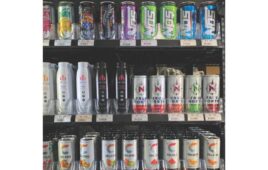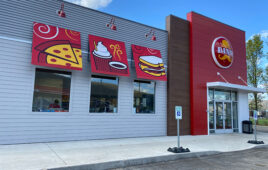 With the economy rebounding, 2011 is the perfect time to start driving general merchandise and health and beauty items in c-stores.
With the economy rebounding, 2011 is the perfect time to start driving general merchandise and health and beauty items in c-stores.
“If you have cutting edge items, and word gets out, people will flock to your stores,” said Brad Lemoine, marketing director for 40 Louisiana U-PAK-It stores, a brand that unites several operators who all use Evans Oil Co. as their fuel supplier. “If you have a trendy item, and you’re one of the only stores in your area that has that item, you can become a destination point.”
Lemoine saw just that happen during the 2010 holiday season when U-PAK-It stores stocked stuffed animals that doubled as pillows, and customers began arriving specifically to find the product. During Valentine’s Day season last month, stores had great success with gift baskets of candy. Surprisingly, the $100 baskets sold better than the $20 baskets.
“One store in particular does about $14,000 in impulse sales Valentine’s week,” Lemoine said. “And it’s all done locally with baskets and the margins are quite large.”
U-Pak-It believes in driving impulse sales with high-ticket items by the cash register. “We think our counters should have $5-10 items on them as opposed to 5-50-cent items,” Lemoine said. “If you can sell one $5 item and make $2.50, do you know how many nickel and dime items you have to sell to make that same amount of money?”
Lemoine predicted sales will be up at his stores in novelty/general merchandise by 10-12% in 2011, depending on the chain’s ability to select the right items.
One novelty item he plans to continue selling in 2011 is pepper spray key chains that retail for $7.99, which he added in November 2010. “I never would have thought I could have sold pepper spray, and now here I am 100 cases later. I think a lot of ladies are buying them on their own, and husbands are buying them for their wives.”
Health & Beauty Care
Effective at the start of 2011, the Patient Protection and Affordable Act of 2010 removed over the counter (OTC) medicine eligibility from flexible spending accounts (FSAs), health savings accounts and similar programs unless the medicine is prescribed by a physician—a change that could potentially affect the category.
The Nielsen Co. surveyed the primary shopper from more than 27,000 households in Dec. 2010 and found 21% didn’t plan to change their shopping behavior, but another 21% did plan to drastically reduce or discontinue purchasing of OTC medications.
It’s noteworthy that households that used FSA funds to pay for OTC medications in 2010 spent significantly more on cough and cold remedies and first aid categories than the general population did, according to Nielsen data.
Closely connected with sustainability, the “Down to Earth” trend is expected to shape the beauty industry overall in 2011, according to market research firm Mintel International.
The free-from formulas trend continues, as more customers look to avoid products with petrochemically-derived ingredients. Some 13% of new skincare, hair care and cosmetics made the paraben-free claim in 2010 (up 5% from 2008).
Also in 2010, almost 9% of new skincare, hair care and cosmetics made organic claims (twice as many as in 2007); fewer than 3% of 2010 launches made the all-natural claim, Mintel reported. In 2011, expect product companies to put importance on the environment, focusing on sustainable sourcing and repackaging to reduce waste.




